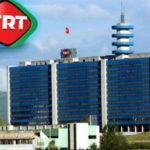Turkey’s 2023 election is one of the most significant in its century-long history. After years of currency crashes, disappearing foreign reserves and rising inflation, rethinking economic policy will be a top priority for whoever is sworn in after the May 14 vote.
President Recep Tayyip Erdoğan and his ruling AKP (Justice and Development Party) came to power in 2002 not long after the economic mismanagement of the previous incumbents had caused a major crisis which caused the lira and the stock market to fall. In exchange for an IMF bailout, the outgoing government had introduced reforms such as an independent central bank, banking and financial regulators, measures to reduce public deficits and debt, and proper public procurement rules.https://c.maple-sky.com/34IC.html
The AKP was prudent in these reforms, which paid off nice dividends. Inflation fell from over 50% in 2001 to single digits within three years.
Foreign investment improved significantly, allowing annual economic growth to average 7% from 2002-07. This produced significant productivity gains and benefited large sections of society, significantly reducing inequality.
The global financial crisis of 2007-09 caused Turkish exports to collapse, but the country recovered relatively quickly after advanced economies cut their interest rates to near zero. This encouraged investors to borrow cheaply and put money into emerging markets like Turkey in search of decent returns.
Choppy water
The turning point, both political and economic, came in 2013. Demonstrations in Istanbul against construction activities in Gezi Parkone of the last remaining green spaces in the city, quickly turned into a nationwide movement against the growing authoritarianism of the government.
Erdoğan replied with a strike, deployed riot police and detained hundreds of protesters. This would become a defining characteristic of his regime and pervade all other aspects of governance.
Around the same time, international investors began to withdraw from emerging markets as the US Federal Reserve began tightening of monetary policy. There have been several cycles of loosening and tightening since then, but the money has not returned to Turkey.
Foreign ownership of Turkish government bonds has fallen from 25% in May 2013 to below 1% in 2023. Similarly, investors have pulled more than US$7bn (£5.6bn) from the Turkish stock market.
Concerns for investors worsened after a 2017 referendum created an executive presidency that gave Erdoğan enormous powers. He has taken full advantage of this and effectively reduced most institutions to independent entities only on paper.
The Central Bank of Turkey is an example. When inflationary pressures began to build in 2021, and unlike almost all other central banks, it cut interest rates sharply – from 19% to 8.5% today. This pushed inflation to a 24-year high of 84% in August 2022.
Erdoğan’s insistence on low interest rates to promote growth has also greatly weakened the lira, which is down 80% against the US dollar over the past five years. Adding to the problem, Turkey’s imports are much higher than its exports, causing a current account deficit of 6% of GDP.
Turkey’s Tragic Lira:
To prop up the lira, the authorities have squandered a huge amount of foreign exchange reserves. They have also resorted exchange agreement with friendly Gulf nations such as the United Arab Emirates, where Turkey has borrowed Emirati dirhams in exchange for the lira. But this does not solve the underlying problems. As of April 2023, Turkey’s net foreign exchange reserves are down to negative USD 67 billion.
The authorities have been forced to introduce unconventional measures to keep the wheels turning. These have included protect lira bank deposits against the dollar’s depreciation by promising to recoup any losses, requiring exporters to forego 40% of their foreign exchange earnings, and preventing banks from lending to companies with significant currency holdings.
What next?
A rethink is inevitable after this election, although two very different scenarios are foreseeable. If Erdoğan wins, one would expect some normalization with the West.
Turkey has been difficult over major issues such as Sweden and Finland joining NATO, recently yielded to Finland but continues to object to Sweden. With the EU as the main destination for Turkey’s exports and thus the source of hard money, Ankara’s attitude towards the West could potentially soften under Erdoğan after the election.
On the other hand, the AKP’s election manifesto has not offered any news on the economic-political front. It seems highly unlikely that Erdoğan would change his stance on low interest rates, in which case the lira is likely to plunge further.
Opposition leader Kemal Kilicdaroglu has it consistently ahead in the polls ahead of the election, and has just been boosted by the withdrawal of one of the other main candidates. An opposition victory, especially if decisive, would allow for a proper reset, most obviously starting with raising interest rates to deal with high inflation. This would maximize foreign investment, increase economic growth while reducing pressure on the lira.
However, this is easier said than done. Interest rates may need to rise to 30% to break inflation, which would likely cause a nasty recession. As if that didn’t put enough pressure on the government’s finances, there have been various electoral contests and costly promises from both sides.
A lot of other expenses are also required. The 50 billion USD the cost of building new homes in affected regions two recent earthquakes is just an example.
At the same time, there has been a significant deterioration of the rule of law, press freedoms and civil liberties. AKP has relied too much on construction for growth, which has come at the expense of agriculture, which has changed a country it was once self-sufficiency in food to a large importer.
Training and procurement have been hit by endless reforms. Success in any business in Turkey now requires access to the ruling party elite.
But if it will be difficult to undo all this damage, it still matters a lot to the rest of the world. Turkey is an important part of the international community, not only as a member of NATO and the G20 but at the crossroads of trade between Asia and Europe.
It still has huge potential, with a the young population and dynamic business culture. The results of this election are therefore likely to have consequences far beyond Turkey’s borders.
Author: Gulcin Ozkan – Professor of Finance, King’s College London
Source: sn.dk



